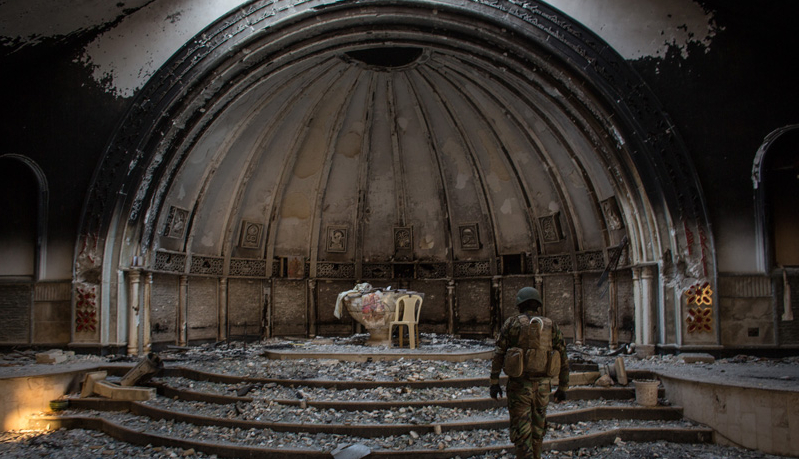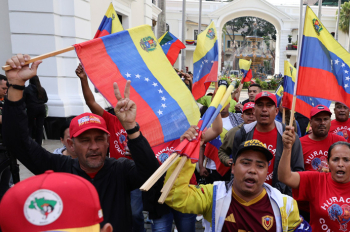
This article is part of a serial release of information from the report "Faltering States and Growing Churches" published by the International Institute for Religious Freedom (IIRF). Click here for part one.
Ten years after ISIS conquered the grand Iraqi town of Mosul, their devastating impact on the Christian communities of northern Iraq remains. At the time of Mosul’s capture in 2014, all 1,200 Christian families living in the city fled. ISIS was routed from the area in 2017, but according to Paul Thabit Mekko, the Chaldea Bishop of Alqosh, barely forty of those families have returned.
Other estimates—harder to check—allege less than half of the 80,000 Christians that fled the Nineveh Plain have returned to their villages. Shia militia groups, funded by Iran, have also partially filled the power vacuum in Northern Iraq, ensure that the ever-shrinking population of Christians remains marginalized.
A perceptible reduction in religious freedom was observed.
While the focus was on Israel’s conflict with Hamas and subsequently Hezbollah, a perceptible reduction in religious freedom was observed throughout the region, especially among Muslim background believers (MBB’s).
Arrests of those leading Muslim background believer house churches in Iran rose sharply. The same happened in Mauritania, Yemen, and Morocco. Expatriate Christians in the UAE reported much higher levels of surveillance, and in Oman more Christians were expelled than usual. The number of Indigenous Christians in Gaza fell below a thousand.
There are signs of hope.
Still, there are signs of hope. In Amman, Jordan, a terrible catastrophe was mercifully averted on 22nd October 2024, when a man carrying a backpack entered the Bible Society’s bookshop and asked, “How you want to want me to explode the place?” He then left suddenly, without attacking.
In Türkiye, one church leader said, “President Erdogan is the best evangelist we have ever had in Türkiye—he has totally divided the country, and 50% of the population detest the Islam he pushes, with predictable effects for the growth of the church.”
After many centuries, there is a church in Pergamon again, and the church has unprecedented opportunities throughout the region to provide relief, trauma care, and support, especially in Yemen, Lebanon, and Sudan.
Egypt continues to improve its treatment of Christians.
Egypt continues to improve its treatment of Christians under President el-Sisi, who is eager to court American aid. Although violence by radicalized mobs remains all too common, the government approved the legalization of nearly three hundred churches in October of 2024, helping shield them from future attacks. As a well-known leader in Cairo said, “If the worldwide church can remember us, and resource us to help with the overwhelming humanitarian needs, we will see growth.”
The next region to feature in this series is India.
Previously published by International Institute for Religious Freedom. Republished with permission.
This commentary draws upon data available in the International Institute for Religious Freedom's Violent Incidents Database, which can be freely accessed at: https://iirf.global/vid/.
Dr. Ronald Boyd-MacMillan, serves as Chief of Research and Global Strategy at Global Christian Relief. He also is a Senior Research Fellow at the International Institute for Religious Freedom and a Research Associate at the Oxford Centre for Mission Studies. In addition, Ronald is Adjunct Professor of Practical Theology at Fuller Theological Seminary focusing on understanding and learning from the suffering church as well as visiting Professor of Practical Theology and Spiritual Formation at Lahore College of Theology in Pakistan.





